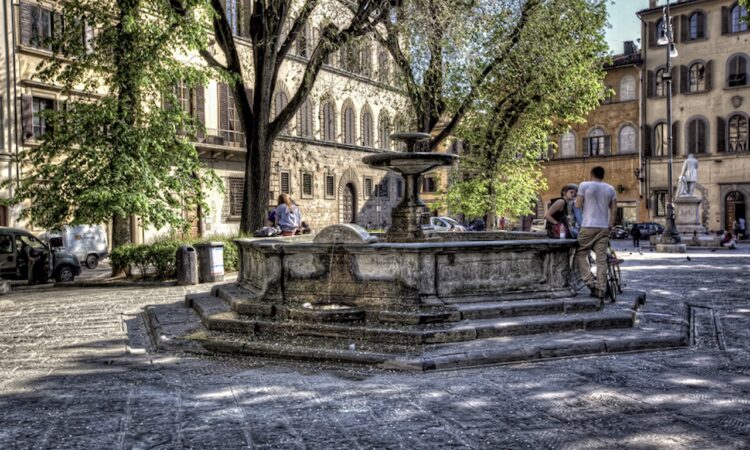Two recent cases involving a former military complex in Santo Spirito and the former Convitto della Calza illustrate how Florence’s authorities and law-enforcement bodies are increasing controls on planning, land use and tourist-accommodation activity in the historic centre.
Florence’s dense historic fabric is undergoing a new round of redevelopment, and with it a rise in institutional oversight. In recent weeks the Guardia di Finanza and the municipality have intervened in two unrelated cases—both involving former institutional buildings now earmarked for private projects. The actions come amid a broader debate on how major properties in the city centre are converted, who benefits, and how Italy’s planning and heritage rules are enforced.
A long-contested project in Santo Spirito
The former Distretto militare, also known as the ex Caserma Ferrucci, occupies part of the block behind the Basilica of Santo Spirito. The complex dates to the 14th century and borders the Augustinian convent. According to reports in la Repubblica and la Nazione, the Guardia di Finanza has opened an inquiry into the concession that allowed a private company to redevelop the site as a high-end residential care facility on a multi-decade lease.
The investigation follows signals sent by the Augustinian friars, who for years have raised concerns about the project’s scale, intended use and impact on the adjoining religious and community spaces. Neighbourhood residents also opposed the plan, favouring public or non-profit cultural and social uses. The Augustinians presented an alternative proposal combining community facilities and limited lodging.
The concession was awarded through a tender managed by Difesa Servizi, an agency linked to the Ministry of Defence, which had received the building from the state property office. For now, the inquiry is ongoing and no conclusions have been made public.
New checks at the former Convitto della Calza
The second case concerns the former Convitto della Calza near Porta Romana, a historic religious complex later used as a boarding house. The municipal administration announced two administrative sanctions: one for running a non-hotel lodging activity without the required authorisation, and one for an unauthorised exterior sign advertising restaurant services.
Alongside the fines—totalling more than €4,000—the city has launched a new procedure to prohibit continuation of the lodging activity unless the operators demonstrate they have the proper title. The municipal police are also checking whether the permitted uses, which include a spa and foresteria (guest facilities), correspond to the activities actually carried out. Local committees had previously reported what they viewed as a de facto luxury guest-house in an area already under pressure from tourist accommodation.
A pattern of increased vigilance
These cases follow other recent interventions, including the planning-violations inquiry into the so-called “black and white tower” opened earlier this year. Together, they point to a period of heightened attention to how historic properties are transformed in Florence, especially where former defence or religious buildings are concerned.
❤️ Support Florence Daily News
If you liked this article, please consider supporting Florence Daily News.
We are an independent news site, free from paywalls and intrusive ads, committed to providing clear and reliable reporting on Florence and Tuscany for everyone.
Your support — whether a one-time gift or a regular contribution — helps us stay independent and keep telling the stories that matter.
Donate securely via Stripe below.
Make a one-time donation
Make a monthly donation
Make a yearly donation
Choose an amount
Or enter a custom amount
Your contribution is appreciated.
Your contribution is appreciated.
Your contribution is appreciated.
DonateDonate monthlyDonate yearlyDiscover more from Florence Daily News
Subscribe to get the latest posts sent to your email.

